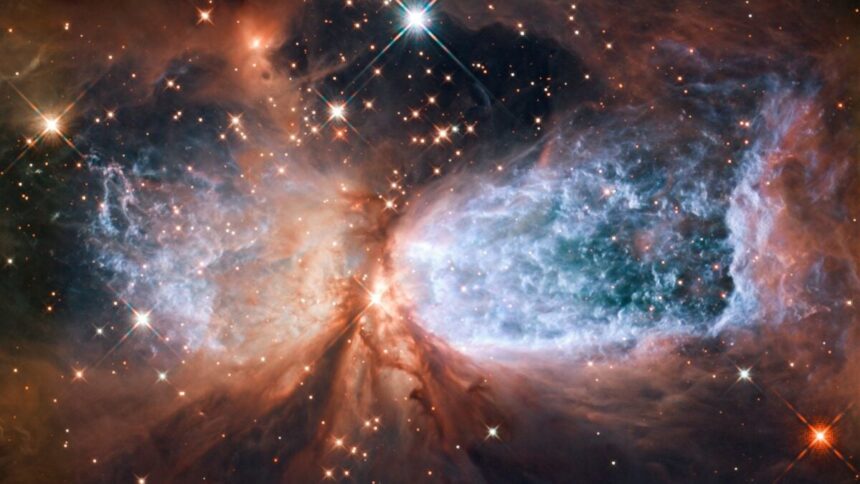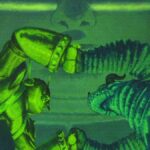Seconds after the Big Bang, the newborn universe gave rise to the first elements—ionized forms of hydrogen and helium. These particles combined, forging helium hydride—the first ever molecule. It would take another several hundred million years for the first stars to be born, and scientists have long puzzled over the exact nature of the chemical processes that led to their formation.
To try and tease apart the stellar origin story, scientists at the Max Planck Institute for Nuclear Physics in Heidelberg, Germany recreated helium hydride in the lab. They found that it likely played a much larger role in star birth than they had previously thought, helping primordial gas clouds shed enough heat to collapse into stars.
In the study, the researchers recreated collisions between helium hydride and deuterium in what they believe to be a first-of-its-kind experiment, according to a press release. Their findings, published in the journal Astronomy & Astrophysics on July 24, indicate that the rate of the reaction remains constant as the temperature drops, contradicting earlier work.
“Previous theories predicted a significant decrease in the reaction probability at low temperatures, but we were unable to verify this in either the experiment or new theoretical calculations by our colleagues,” Holger Kreckel, who is a researcher at Max Planck and the lead author on the study, said in a statement.
“The reactions of [helium hydride] with neutral hydrogen and deuterium therefore appear to have been far more important for chemistry in the early universe than previously assumed,” he added.
Two helium hydride reactions produce molecular hydrogen, and likely aided star formation in the early universe. In the first—replicated in the study—deuterium, an isotope of hydrogen that contains a neutron in addition to a proton, collides with helium hydride to yield hydrogen deuteride, a form of molecular hydrogen composed of a hydrogen atom and a deuterium atom. The other reaction occurs when helium hydride collides with a neutral hydrogen atom, producing neutral molecular hydrogen. Both forms of molecular hydrogen act as coolants, helping nebulae lose heat, condense, and ultimately collapse into stars.
The researchers used Max Planck’s Cryogenic Storage Ring to carry out their experiment. This low-temperature reaction chamber allows scientists to study molecular and atomic reactions in space-like conditions. The team stored helium hydride ions inside the chamber for up to a minute at roughly -450 degrees Fahrenheit (-267 degrees Celsius), then superimposed them with a beam of neutral deuterium atoms. To observe how the collision rate varies with collision energy—directly related to temperature—they adjusted the relative speeds of the two particle beams.
Scientists previously believed rate of reactions would slow down as temperature dropped, but the results of this experiment suggest otherwise. The researchers found that the rate remained almost constant despite decreasing temperatures. This surprising result suggests that helium hydride remains chemically active even in cold conditions, a finding that the scientists argue in their paper should prompt a reevaluation of helium chemistry in the early universe.
Read the full article here












